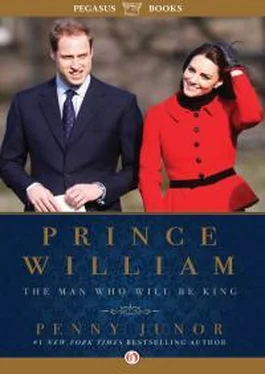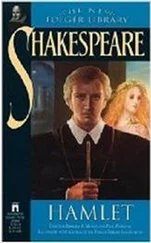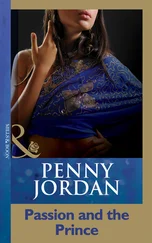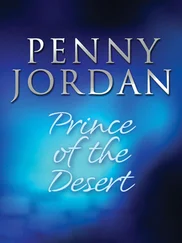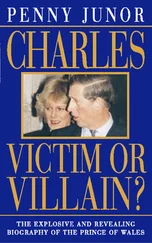The irony is that in suddenly cutting Baba, as he called her, out of the four-year-old’s life, Diana was inflicting on her son the same painful feelings of loss and bewilderment that she herself had struggled with when her mother suddenly disappeared from her life at the age of six.
William understood nothing of his mother’s insecurities and had no comprehension of why Baba had gone. Had he, perhaps, been so naughty he had driven her away? Once she was out of the house, she was out of his life and Diana entertained no contact. Barbara was invited to his confirmation ten years later because Charles recognised she had been an important part of his life. William never forgot her either. Barbara Barnes was one of the most important names on the guest list at his wedding twenty-five years after she vanished from the nursery.
Two other nannies followed, Ruth Wallace and Jessie Webb, but neither stayed for more than two or three years. Finally Olga Powell slipped seamlessly into the role. She had been deputy to all three nannies, in place since William was six months old, and remained with him until his mother’s death in 1997. Both boys stayed in touch with her after her retirement and, in her eighties, she was another prominent name on the wedding-guest list.
But something died in William the day his beloved Baba left; he became less outgoing, less trusting, less inclined to make himself vulnerable.
In 1998, more than a year after Diana’s death, I wrote a book that attempted to discover the truth about the relationship between the Prince and Princess. I called the book Charles: Victim or Villain? because I wanted to determine, if possible, which of the two he was. Had he caused Diana’s problems, as she had suggested in her famous Panorama interview, by his obsession with Camilla Parker Bowles, or had Diana gone into that marriage already damaged and Charles had returned to Camilla Parker Bowles because he couldn’t cope with her erratic behaviour? Had he, in short, been a villain, or was he as much of a victim as Diana?
The conclusion I came to, after talking to many of the key people in their lives during this period, was that there were no villains.
While Charles sank into ever deeper depression, mystified by Diana’s mood swings and his inability to make her happy, she embarked on a series of love affairs which were each as unfulfilling as the last. Charles, meanwhile, started seeing those friends that he had ostracised at Diana’s insistence. Now back in the fold, they were deeply concerned about how their friend had changed in the intervening years, and feared he might be close to thoughts of self-destruction. He had said nothing about the difficulties of his relationship and had been loyal to Diana to the nth degree, but they guessed that if anyone could help restore his spirits it would be Camilla, whose own marriage was less than fun, and Patty Palmer-Tomkinson put them in touch. Charles and Camilla had not seen each other to speak to since his engagement, except once, on the occasion when he gave her the famous bracelet, and the only telephone call was with the news that Diana was pregnant.
At first they wrote each other long letters, then there were phone calls and after several months they met at the house of their mutual friend; and eventually the relationship became physical. Camilla became his lifeline; she made his spirits soar, although it was a long climb back from the abyss. She was a sympathetic ear, someone who understood and cared about him – and crucially believed in him – and the only person to whom he felt he could speak openly and honestly without for a second doubting she would keep his trust. Yet there was a lightness in the friendship too, and an easiness; she was on the same wavelength, she had the same sense of humour, loved the same things and shared the same interests. Her marriage to Andrew was a sham; although she was deeply fond of him, and remains so, he had been unfaithful to her for years.
Whatever Diana might have imagined, and whatever she accused her husband of when she spoke to Andrew Morton, Charles did not commit adultery, as he said to Jonathan Dimbleby, ‘until his marriage had broken down irretrievably’, and he did not sleep with Camilla on the night before his wedding, as Diana claimed he did. He may have weaknesses in his character, but Charles has never been dishonourable. If anything he has been too honest for his own good, unable to tell the white lie that would have harmed no one and prevented the emotional tsunami. He was racked with guilt about Camilla, little knowing about Diana’s own infidelities, which had begun years earlier.
Once Diana realised that Camilla was back in the picture, she went into meltdown, and any pretence of proper married life became impossible. They could barely tolerate being in the same room as each other, let alone under the same roof, as everyone who worked for them was painfully aware. The curse of royalty is that there is no privacy and no clear distinction between work and play, public and private. There were blistering rows, tears and hysterics, rage and fury, all heard to some degree by everyone who was hapless enough to be in the house. Kensington Palace was small and badly soundproofed but not even the Cotswold stone walls at Highgrove were enough to keep the poison from pervading the house – and as time passed it was increasingly out in the open.
Greeting one of his staff in full uniform one morning before setting off on a formal engagement, the Prince said, ‘You only have one medal. We’ll have to do something about that.’ Whereupon the Princess, following Charles down the stairs, said, ‘Yes, but at least he earned his.’
Such moments were uncomfortable for everyone, but the sarcastic remarks weren’t reserved for the Prince. Members of the Household often found themselves in the firing line too. As one of them said, ‘I would have given up all the flowers, all the niceness if only we could have avoided the sheer bloody-minded sarcasm, the silences, and sending to Coventry that went with it.’
It was a lottery what kind of mood both bosses would be in. The Prince, always demanding but normally friendly, polite and businesslike, was prone to unnerving temper tantrums. They quickly passed and although he didn’t always apologise, he thought no more about it. The Princess was deadlier. In a good mood, she was a veritable angel and couldn’t do enough to help people, be they strangers, staff, family or friends. She would send their mothers flowers on their birthdays, give them presents and open her heart to them. That could turn on a sixpence, and if she got it into her head that someone was plotting against her, or being disloyal, or she simply no longer liked having them around, they found themselves out in the cold; cut dead. Members of staff lost their jobs, friends were cut adrift without a word and even her own mother endured long periods of estrangement from Diana.
Arguably, the only people Diana consistently loved were William and Harry. She would repeatedly say, ‘They mean everything to me.’ Her love for them was almost obsessive and it was possessive; as if she was afraid that if she didn’t demonstrate it, with treats and hugs, or verbalise it, they might not be aware of it. She couldn’t leave them to be quietly confident of her love for them, as they were of their father’s. Another of her favourite phrases to the children was, ‘Who loves you most?’ She told her biographer Andrew Morton: ‘I want to bring them up with security, not to anticipate things because they will be disappointed. That’s made my own life so much easier. I hug my children to death and get into bed with them at night. I always feed them love and affection. It’s so important.’
No one knew better than she how painful and upsetting it had been for her as a child to see her mother cry when her parents’ marriage disintegrated; and to hear her brother call out for their absent mother in the night. She knew precisely how sad and insecure it made her feel.
Читать дальше
